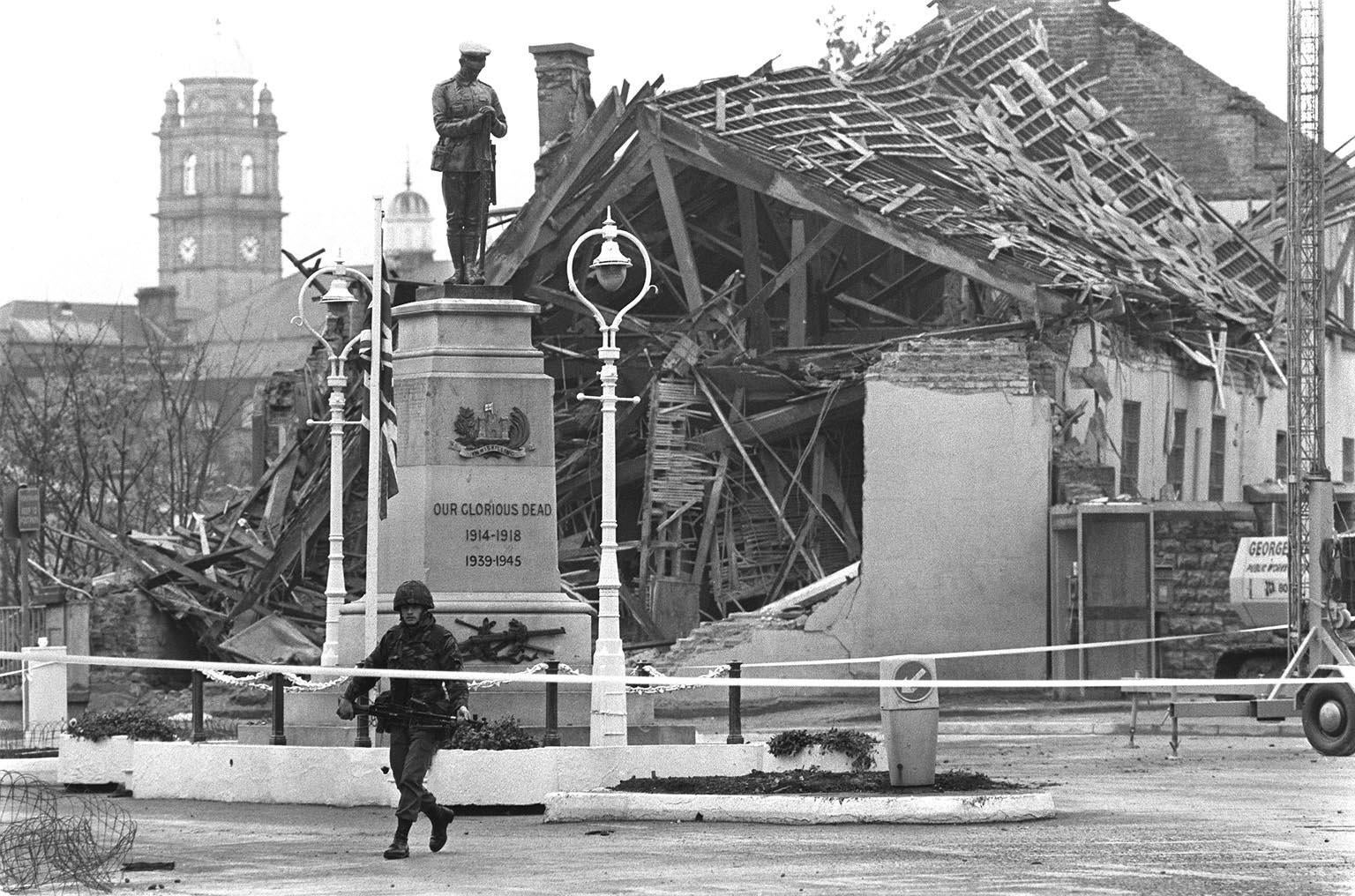‘Spectrum of views’ across police force around legacy of Troubles proposals
The proposals are opposed by all the main parties at Stormont, the Irish government and many victims’ groups.

Your support helps us to tell the story
From reproductive rights to climate change to Big Tech, The Independent is on the ground when the story is developing. Whether it's investigating the financials of Elon Musk's pro-Trump PAC or producing our latest documentary, 'The A Word', which shines a light on the American women fighting for reproductive rights, we know how important it is to parse out the facts from the messaging.
At such a critical moment in US history, we need reporters on the ground. Your donation allows us to keep sending journalists to speak to both sides of the story.
The Independent is trusted by Americans across the entire political spectrum. And unlike many other quality news outlets, we choose not to lock Americans out of our reporting and analysis with paywalls. We believe quality journalism should be available to everyone, paid for by those who can afford it.
Your support makes all the difference.There is a “spectrum of views” within the police on UK Government proposals to deal with Northern Ireland’s troubled past.
Mark Lindsay, chairman of the Police Federation for Northern Ireland, described the legacy of the Troubles, which saw almost 3,000 people killed, as a “dark cloud” that hangs over not just policing but society.
He said some within the police see the proposals – which include an effective amnesty on convictions – as a way forward, but others want to see all perpetrators brought to justice.
In July, the Government published a command paper outlining its intention to prohibit future prosecutions of military veterans and ex-paramilitaries for Troubles incidents pre-dating April 1998.
The proposals are opposed by all the main parties at Stormont the Irish government and many victims’ groups.
Mr Lindsay said some of the political narrative around legacy does not help modern day policing, adding that police officers attended every scene in all communities throughout the Troubles.
“What has been lost has been the context of what had happened at the time. It’s very much focused at the moment on ‘the police were responsible for this, that and the other’, and ironically a lot of the people making the calls for openness and transparency from the police are the people who know the answers themselves because they were involved in groups that actually led to much of this,” he told the PA news agency.
“There are proposals on the table at the moment which, if they come into play, may allow us to move forward and take it away at least from where we are at the moment, of this continual grinding of current policing.
“I think legacy continues to feed into the narrative that every issue in policing is orange and green when in fact it is not, there is a far bigger society in Northern Ireland now than orange and green, but I think legacy perpetuates this, that everything is a green-orange issue.”
Mr Lindsay said many former and current officers feel hurt that legacy proposals will not look at what happened to colleagues who died in the Troubles.
“People have different ways of dealing with all these things, but one that sticks in my mind is a family who lost their son about 30 years ago, and they said they just had to put it to the back of their mind, they know they’ll probably never, ever get justice for what happened to their son… a more dignified family you could never meet,” he said.
“It saddens me to see so much talk about legacy, investigations and what comes out of legacy with absolutely no talk of dealing with what happened to people who were public servants out trying to serve our society.”
He said police officers believe nobody should evade justice.
“We’re also very conscious that there should be no equivalence either – police officers doing their job and certain things happened that weren’t premeditated, and they’re now being looked at in the same way as people who sat and planned and plotted for weeks and months on end to take life,” he said.
“I think that hurts a lot of people because that is not the ethos of policing, it wasn’t then and it certainly isn’t now.
“We’ve certainly never hidden away from the fact if there were police officers involved in any criminality like that, they should be before a court.
“I would just doubt how much of that actually did happen that hasn’t been dealt with through the courts, because we have had continual investigations by the Ombudsman and others, and I haven’t seen any police officers in court for serious crime yet. And that could be the fact that not too many were involved in serious crime and the ones who were have actually been through the courts process.”
He said it is for politicians to decide how to deal with legacy, but police must not be the only ones investigated.
“We will work with whatever (politicians decide) but one thing we’re very conscious of is, in all these proposals, we don’t want police officers left as the only people being investigated when everyone else is skipping down the country path thinking they have got away with stuff, because there will be an absolute tsunami of funding put into trying to pull out the slightest errors made by police officers and we don’t think that’s proportionate and we don’t think it’s fair either,” he said.